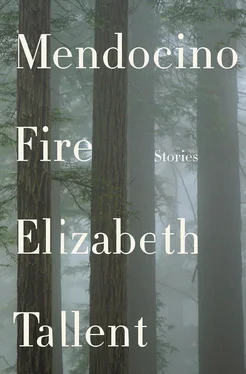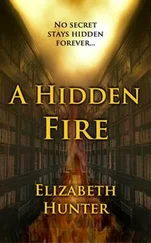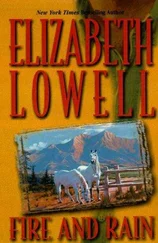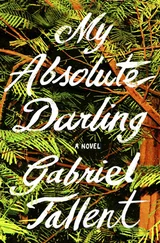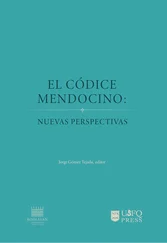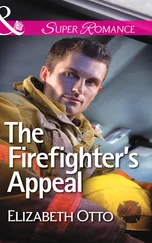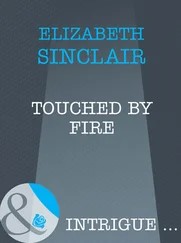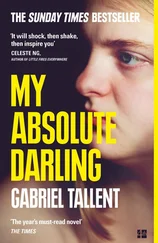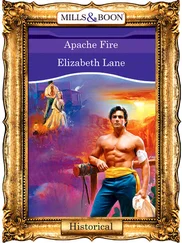Crossing to the arroyo’s edge, he can make out the boys’ voices, and guesses they’re intent on intergalactic slaughter. Lasers, viruses, dirty bombs — their games incorporate everything there is to fear. This is good for them, David believes.
“Hey Shane.
“Edmund.”
He calls the ill-assorted names — ranch hand, dandy — chosen by two of the three women he’s loved and, from the hush that follows, figures he’s been heard. A scrap blows by, and David stomps. This is the usual lawlessness, the regular Joe’s cost-effective contempt for the environment. People find this wasteland irresistible: free dumping! Showing a perverse initiative, somebody has carted an oil drum out to the tip of this stony spur where the road dead-ends. The human love of shortcuts accounts for a lot of devastation, David thinks. The ADHD species, distracted from the story unfolding down at the level of chromosomes or up in the ozone. He releases his scrap to the wind, and it’s whisked away. As if a signal has been given, more bits and pieces swirl past, the dervish blowing by, revealing that an object he had mistaken for a plank or beam sticking out of the oil drum is in fact a furled rug. It seems undamaged, and as David puts an arm around it and levers it out, a kamikaze egg carton rears up and crunches into his shoulder. He studies the oil drum’s seethe: tin cans, a partially melted telephone, a doll’s head trailing singed acrylic hair, a coil of filthy rope, a shirt stippled with blood, a clock, rain-fattened paperbacks, eggshells, ashes, a melee of electrical wire, a high-heeled shoe. As he works it loose, the rug dislodges a cascade of junk that tumbles along the ground, light bits scattering, heavier things rolling this way and that. Something, an envelope, wings past, nicking the corner of his eyebrow.
“—wouldn’t be anybody.” Panting. “Left to. Operate. Lasers.”
“Wrong! Somebody lived! Cause they hid in—”
They come clambering up the slope.
“—caves—”
“—that, like, connect, a whole underground—”
“— city —”
Reaching the arroyo’s rim, the half brothers come to a halt and stare.
Squatting, David peels back a corner of the rug. With only a few square inches revealed, the workmanship is unmistakably fine.
“Hey guys,” he says. “Look what I found.”
For a breezy minute they ponder the scene, litter skittering and dodging past. The moon catches their eye-whites. Two hours’ reckless play brings out the brother in them.
“So?”
One brother’s cool slides its knife blade through the bonds of pairdom.
“Show some fucking interest in what Dad found, whycantcha.”
Ordinarily, and despite the unfairness of enforcing rules in this male wilderness, David would have to deal with fucking . He does a quick check. Edmund does not appear hurt, only newly severed from his older brother. His eye-whites glitter. Not with boredom, either. Freshly relieved of intimacy, both boys are radiant. David gives the rug a good yank, and it thumpingly unrolls.
“Wow.”
“Wow.”
David sits back on his heels, trying and failing to understand, to account for the intrusion of marvelousness, the rug’s fanatically executed geometry interrupted just at the point of frigidity by winding, organic movement, delicate leaves, impish involutions, this diversion, this near escape from paralysis part of its tale, its secret proffered with the bristling incomprehensible vitality of bees dancing within a hive, vision inspired by the challenge but the mind’s movements tentative, repeatedly stubbed out, this agitating impenetrable beauty the work of how many nights and days, its blood reds and ominous crimsons contending with, outnumbered by, a choir of blues, azure, lapis, jay feather, baby blanket, forget-me-not, but to number them like that, to try to say what they’re like, that’s merely a poor, doomed attempt to domesticate them. They are gorgeous blues, and they assail peace of mind. In the center there is an oval where nothing happens, visually, and this is the indeterminate dun of animal camouflage, of a doe fading into underbrush, and what appears to be peaceful is really another wild evasion.
Edmund, at nine still sometimes playing the baby, hangs an arm around his neck. “You pulled that out of the garbage, Dad?”
“It shouldn’t have been in there.”
Shane leans into David from the other side. “Why was it, then?”
“I really have no idea.” No taint of yeast or compost, no halitosis of souring milk carton, no oil-drum dankness mars the rug’s dry, antique compound of grass, twine, stone floor .
Edmund says, “I want to see in the can.”
“Honey, there’s nothing else in there, and we’ve talked about syringes and dangerous sharp things and how the guys handling garbage wear gloves.”
“You didn’t have gloves.”
He tries a technicality and some italics, an old parenting tactic. “I wasn’t reaching down into the garbage, the rug was right on top , and I carefully carefully carefully pulled it out.”
“Dad I really really need to see.”
Father and son go over and peer down into the oil drum: garbage. “Okay?” David says.
Behind them Shane wings stones at the drum until David says, “Cut that out.” Shane pitches a last defiant stone and the drum gives off the resonant gong of a bull’s-eye. Edmund runs back to try to match this feat, and David decides to let them have at it, because what can they hurt? He rolls the rug up tight and improvises a kind of fireman’s carry. The metal whines when the stones whang against it. The brothers have refined their aim, and as David grapples with the rug, shoving it into the car, he takes pleasure in his boys’ prowess. Hunters. He’s the father of a pair of slender, moonlit, stone-throwing boys: there may be no deeper pleasure on earth. He pauses to admire them. They sense this. It throws their aim off. They want to be fatherless, motherless, outcast, a savage tribe of two, their terrible prey — black, squat, stinking like a bear — moaning when it’s dinged. Before they can leave this place, the spirit of the bear that the oil drum mysteriously incarnates must be stoned back to the underworld. If there were no boys throwing stones, that spirit would never have emerged from the underworld in the first place, but put a stone in a boy’s fist and the old world breathes out reeky ghosts. The Pleistocene lives on in the heads of boys. In fact, three-fifths of EPIC believes that we’re headed back that way: when weather chaos descends big-time and the center cannot hold, humans will regroup as hunter-gatherers. That’s the optimistic view. What the other fraction of EPIC believes cannot be spoken aloud, since (David is one) they are fathers, and certain thoughts are forbidden to fathers. Annihilation. Universal extinction . Nestled, still tightly rolled, in the rear of the station wagon, the rug’s strangeness is muted: it could be rightfully his, bought and paid for. David calls to the boys to get into the car but finally has to start the engine — David’s own dad’s long-ago threat — before the boys climb in. They’re overextended, he figures, long past the hour when they should have been freed of the intensity of their love for each other by the bleating electronic triviality of Game Boy.
“It’s skanking up our car,” Edmund complains, and Shane chimes in, “It smells all old.”
“Hey, does everything have to be new? Plastic? Old’s not such a bad smell, is it?”
Pleading, always a wrong move.
“It’s not ours.” Edmund, doing a good imitation of Jade. She’s new enough that they shouldn’t be able to mimic her this well, and the boys’ appropriation of Jade’s voice and style when they want to drive home a point slightly worries David, and feels unfair, as if he’s being ganged up on.
Читать дальше
